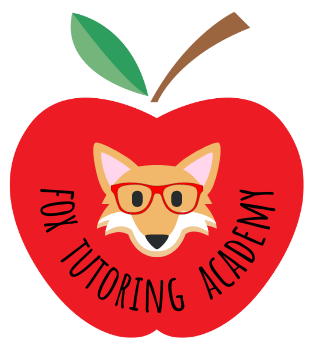Phonics is one of the most important reading skills your child will ever learn. It opens up a world of knowledge, helping them explore new ideas, understand their surroundings, and communicate effectively. But for many children, learning to read can feel challenging. That’s where phonics comes in—a proven method that connects letters and sounds to teach kids how to read. In this blog, we’ll dive into why phonics is essential for early readers and explain how it forms the foundation for lifelong learning. Plus, we’ll cover five critical areas of phonics that every parent needs to know.
What is Phonics?
Phonics is a method of teaching reading that connects the sounds of spoken language to letters in written language. By learning how to match letters with their corresponding sounds, children can “sound out” unfamiliar words. This breaks reading down into manageable parts, making the process less intimidating. Phonics not only helps kids decode words but also builds essential skills in spelling and writing, giving them the tools they need to succeed.
Why Phonics is Essential for Early Readers
1. Builds a Strong Reading Foundation
Learning to read is like building a house—you need a solid foundation. Phonics provides children with that foundation by teaching them how to decode words through letter-sound connections. This skill allows them to recognize new words with confidence and sets the stage for more complex reading as they progress.
2. Encourages Reading Independence
Phonics empowers children to figure out unfamiliar words on their own. When kids master phonics, they no longer need an adult to help them with every word. This independence boosts their confidence and motivates them to read more often. The more they read, the stronger their skills become.
3. Enhances Reading Comprehension
Phonics not only helps kids decode words—it also improves their ability to understand what they’re reading. When children can read fluently, they spend less time trying to figure out how to read and more time focusing on the meaning of the text. This leads to better reading comprehension, which is the ultimate goal of reading.
4. Improves Spelling Skills
Phonics gives children a system for figuring out how words are spelled. Instead of relying solely on memorization, phonics helps them understand how sounds correspond to letters, making spelling easier and more intuitive. This skill becomes invaluable as they start writing more complex sentences and paragraphs.
Key Phonics Skills Every Young Reader Needs
To help your child fully benefit from phonics, there are five key areas that will build their reading and spelling skills. Let’s break them down:
1. Sound-Letter Correspondence
This is where it all starts—teaching children how letters represent specific sounds. Understanding sound-letter correspondence helps kids decode unfamiliar words by “sounding them out.” For example, once they know that “c” makes the /k/ sound, they can start decoding words like “cat” and “cup.”
2. Phonics Patterns
Phonics patterns, such as vowel teams (like “ea” in “beach”) or consonant blends (like “st” in “stop”), help kids recognize common letter combinations in words. Learning these patterns makes decoding new words faster and easier. As they become more familiar with these patterns, their reading fluency increases.
3. Irregularly Spelled High-Frequency Words
Not all words follow typical phonics rules. Words like “said,” “of,” and “the” are high-frequency words that don’t fit regular phonics patterns. Teaching children to recognize these irregularly spelled words by sight helps them read more smoothly without getting stuck.
4. Multisyllable Words
As children progress, they’ll encounter longer words with multiple syllables, like “elephant” or “discovery.” Teaching them to break these words into smaller syllables allows them to decode and understand more complex vocabulary. This skill is crucial as they start reading longer books and more advanced texts.
5. Prefixes and Suffixes
Understanding prefixes and suffixes gives kids the ability to figure out the meaning of unfamiliar words. For example, knowing that “un-” means “not” helps them understand that “unhappy” means “not happy.” Teaching prefixes and suffixes expands their vocabulary and deepens their comprehension.
How Fox Tutoring Academy Uses Phonics to Build Strong Readers
At Fox Tutoring Academy, phonics is a core part of my tutoring program. I know that mastering phonics is essential for developing strong reading skills, so I incorporate it into every lesson. Through interactive activities, personalized lessons, and real-world reading practice, I help children develop the phonics skills they need to become confident, fluent readers.
Interactive Activities
In my tutoring sessions, I engage children with fun, hands-on phonics activities. From sound-matching games to phonics puzzles, I make sure kids are actively involved in their learning. These activities are designed to make phonics concepts more memorable and enjoyable for young learners.
Personalized Lessons
Every child learns differently, and at Fox Tutoring Academy, I personalize each lesson to suit your child’s unique needs. Whether your child is just starting to learn letter sounds or needs help blending words, I tailor the lessons to ensure they are both challenging and supportive. My approach helps children grow their skills at a pace that works best for them.
Real-World Reading Practice
Phonics at Fox Tutoring Academy isn’t taught in isolation. I provide children with opportunities to apply their phonics skills by reading real books and stories. This approach reinforces the connection between phonics and everyday reading, helping kids understand how these skills work in real-life situations. Reading actual books boosts their confidence and fluency as they see phonics in action.
Phonics: The Foundation for Lifelong Reading Success
Phonics is the key to unlocking reading success. By building a strong foundation, encouraging reading independence, improving comprehension, and enhancing spelling, phonics equips children with the tools they need to become strong, confident readers. At Fox Tutoring Academy, I am passionate about helping every child develop these critical skills through personalized lessons and engaging activities.
Ready to help your child become a confident reader?
Download my free guide, “The 5 Essential Areas of Reading At Home,” and discover simple, effective strategies to support your child’s reading journey today. Together, we’ll set your child up for a lifetime of reading success!

